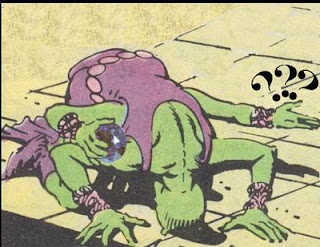Quite obviously, we've not very much had time for this chapter lately. Also, during summer - quite understandably, too - these posts are always more random and infrequent. So, this time I'll just devote most of it to gather some memoirs from what the material those disadvantageous and unlimitedly dishonest tactics by his Derpessivousness may have deprived from this page's offerings.
Seems that a few posts from these we've probably mentioned at some earlier posts ...But some probably were left unmentioned until this (that I now sort of recollect been). Nothing very extraordinary, perhaps, but seems that list at least would contain: A few book reviews (A biography, maybe couple those ...but I'll consider that there should be smthg similar on the undecided future); ...And also there was that book from the marine turtles (conservation); ...And a few naturalist classics, too. From fiction (books) there's probably been several too, but I cannot seem now recollect but that book from early romantic literatures and that other one from some 19th century realism/family chronicle (was it the Buddenbrooks? And, I guess there was smthg from Chekhov's short-stories too?). And probably some other books; Perhaps also reviews from some other realism work(s) from that golden century of the literatures? ...or Dante (Alighieri), maybe? Or something from Joyce, Twain or even Virginia Woolf, perhaps? ...Well, anyway, the few additional texts censured from here I recollect been (our) general attempt for to outline the scope of extermination of (some) animal species on Europes within some 1000 years socio-historical framings (about, etc). And then there was that inspired but frank commentary about asphalt, at least as I recall that was...but perhaps also something else which my mind has now skipped over(?).
Anyhow, let's keep this short and just say that in the summer-time posts will probably be from this chapter and maybe little else. Maybe few comics for a while, or smth... And the above paragraphs only to gather those on some combined list (for later uses, perhaps). (W-G.)
---
And - like now has become for the occasional regular content of these chapters - our spectacular insect 'guest'; this time it will be Bumble-bee. Them are (obviously) noted from being the best adapted species (from bees) to the Northern European Natures and also are - perhaps - the most successfull among (social) hymenopterous insects that we find.
And - like now has become for the occasional regular content of these chapters - our spectacular insect 'guest'; this time it will be Bumble-bee. Them are (obviously) noted from being the best adapted species (from bees) to the Northern European Natures and also are - perhaps - the most successfull among (social) hymenopterous insects that we find.
They're always on the move already earliest of Spring and practically untiresome - Around mid-summer, when there's adequate light throughout the day (24-hours time), they seem to fly almost 'day and nite'. Goes without sayin that they're among most important species on the pollination of various plants, not least many berries; ...blueberries and probably raspberries, (and others, etc). And - at least seem to me logical supposing - that they're relatively much generalists at their choices from plants (flowers and others alike), even though I've not viewed any particular study about that. Feels difficult to think some other such important insect for the ecology in general (although sure there is, but those many aren' t that so visible and common to see, probably). Not contradicting previously said, but from many (natural) flowers seems it in fact mentioned that they're especially 'designed' in a certain way - in a way that only bumble-bees fit for their pollination (ie they're species large-sized enough to reach for the blooms and to transfer flowers pollen from one plant to another).
 | ||||
| Early at Spring there's not so much nectar on flowers, | and them also seem remain still for while... |
...And probably very much more there would be about Bumble-bees (but read it elsewhere). There's about over 10 separate species of Bumble-bees at the N.Europe's, all adapted to a certain kind environments and conditions. The species in the pics is - acc. my guess - Bombus hypnorum. I suppose it's around second most common species, only the yellow-striped some (B. lucorum) are probably more numerous and frequent from see. Not perhaps the most cute (among the insects); Or, not the most impressive from colorations; Or, not some of the rarest ...but they're certainly some from the most diligent. That is, in fact, so apparent and self-evident - from natures 'gifts' we typically tend think they are - that mostly we don't even pay attention for. (...But of course, the Bumble-bees have always had a very popular place on fx the children's literatures, there's numerous characters from them at stories...)















![[Fig 2.; p.9]](https://blogger.googleusercontent.com/img/b/R29vZ2xl/AVvXsEhsCfSH7164PD5KvWgwkBKENMVO1Mo63i4knFFkOK4OeQMeU6eNM382G6SLJn1ZJHQMOtAFZj7qeGAZae55ir9JOMUUZD9KwTbl38AGpKntRNZY9isTfOZyfqaBXidaL1E8b73-vusuNcA/s1600/wegfkafoocao.jpg)






